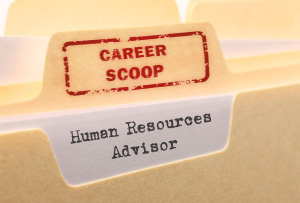Career Insight: HR Advisor
In a nutshell, what do you do?
I take care of the employee side of the business – finding good staff, bringing them on board, ensuring they’re trained and aware of our policies and procedures and then answering queries, writing and advising on employment policies, and helping managers to look after their staff. It can involve anything from inducting new staff, to collective bargaining for wages and helping managers to support staff who aren’t performing as expected.
Why did you choose a career in HR?
I went into HR because it was all about people… and it kept coming up in assessments!
What path did you take into it?
I studied Psychology but knew I didn’t want to become a Psychologist, so I did a postgrad qualification in HR and then threw myself at every entry-level HR job I could find.
Like most HR people, I started out as in admin, sending out contracts and typing up meetings etc, before I was given recruitment jobs. With time and trust, I was given employment relations roles, like running disciplinary hearings…
What, in your opinion, is the best bit of being an HR Consultant?
You get to work with people, pretty much all day, every day, and the work’s very varied. You can be sitting on interview panels one day, running training the next day, and putting together ideas for a new policy or initiative after that. It’s also busy and challenging – you need to keep up to date in HR and employment law, so you’re keep learning.
Most organisations have an HR team, so you can work in the private or public sector, across just about every industry. With experience, you can move between companies, and it’s up to you whether you specialize / stay a generalist, work full or part-time.
Every job has its downsides. What do you think are the worst bits?
Recruitment can get repetitive and all the paperwork’s tedious but critical (especially for industrial relations issues). Sometimes you have to implement policies that you don’t agree with, which can be challenging, and the work can be adversarial at times. No matter how you feel, or how difficult people are, you always have to keep up a professional manner.
Is it what you expected when you first started out?
I didn’t even know HR existed til I left university, so I didn’t have many expectations – but lots of people go into it, wanting to help people and make a difference. While you do get to help people, you also deal with complaints, disputes, problems and restructures… so you have to be prepared to deal with conflict. There’s also a lot of admin involved!
What do the public least understand – or mistake – about what you do?
The comment I hear most is, we have HR and they’re awful. You’re often unpopular because you have to make tough decisions, or implement them on behalf of a company. Whenever someone’s given a warning, fired or made redundant, HR’s involved… and that’s what people often think of.
What kind of people tend to do well?
People with good interpersonal skills, as you work closely with a huge variety of people, and often rely on good relationships and credibility to persuade managers to take your advice. There’s a lot of writing (formal letters, minutes, policies and reports) so you need to be good with language, and it’s a busy, changeable role, so you need to be well-organised, good at juggling and able to adapt quickly.
Being trustworthy with confidential information is crucial, and to do well, you need business nous, strategic thinking and good judgment. You’re in HR to help the organization meet its goals, efficiently and without problems. You’ll thrive if you can think 3 steps ahead, foresee problems and persuade your managers to make better HR decisions…
Finally, any advice you’d offer to people looking to get into this line of work?
The hardest bit’s getting your foot in the door, so get experience any way you can. Look for casual work, volunteer… and get involved with the AHRI, to build your knowledge and networks. Lastly, you have to put together a professional resume, and come across well at interview. These are HR staples, so you really need to know your stuff, and walk the talk!




